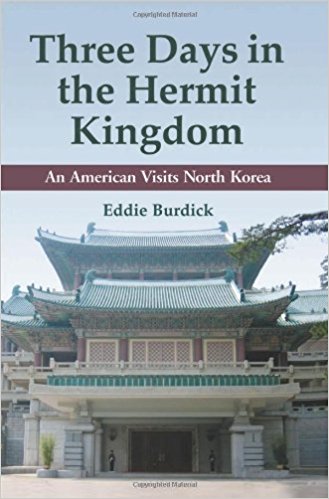India and the former Soviet Union have had a very unique relationship in the last century. After India’s independence, USSR was perhaps the biggest ally that India had. Russians helped India set up the first steel plants. Indian movies were hugely popular in USSR despite their song and dance routines. When I was growing up, translated books from USSR, especially Mir Publishers, were quite popular due to their superior quality and affordable prices. I still remember my first encounter with Einstein’s Special Theory of Relativity through a beautifully illustrated Russian book. We rarely came across harsh criticism of USSR – neither from the government nor from the Indian journalists. As a result, I realized it quite late that Russia was fundamentally quite different from India and other democracies. (As it turns out this was no accident but rather an elaborate plan by the KGB propoganda in India).
Communism took a major hit when the Berlin Wall came down and the Soviet Russia disintegrated. This does not mean that China or Russia have become more democratic. Censorship is as strict as it has always been. All references to Tianamen Square protests of 1989 are still systematically removed from the Chinese culture. And any opposition to Putin results in exile, imprisonment or death. At the same time, these countries are much more accessible now. People can visit these countries relatively easily, though they will be under surveillance all the time. Moreover, the economic aspect has been dominant in the international relations, especially when dealing with China.
Out of all the communist countries, North Korea remains as impenetrable as ever. You cannot visit North Korea – at least not easily. The North Korean airways – Air Koryo – is not allowed to fly over the airspace of most countries. There are very few smuggled videos coming out. For everyone outside, North Korea remains a big mystery. And that is exactly why a book written by an American while spending three days in North Korea is so interesting.
Eddie Burdick is a Texan and also a die hard Koreaphile. A Koreaphile is interested in both South Korea and North Korea. If you want information about South Korea, all you have to do is look it up on the internet or if you are so inclined, visit. It’s the North Korea that is the Holy Grail for Koreaphiles. Eddie had been trying for about 20 years to arrange a visit and at last he succeeded. He was accompanied by three Americans, Wally – another die-hard Koreaphile – Charles and Alice. The group was put together by an American-based tour operator. Eddie wrote a detailed account of his visit, along with photographs. Surprisingly, there was no objection to taking photographs. To say that it’s a fascinating book would be an understatement. Part bizarre, part mysterious, the journey described in Three Days in the Hermit Kingdom feels like what Alice must have felt while visiting the Wonderland.
The tourists were received by two North Korean guides, both named Kim. Eddie refers to them as Kim the elder and Kim the younger. Their itinerary was fixed and they were not allowed to go anywhere on their own. Even when they went down for breakfast, they were not allowed to sit anywhere. A maître d’ would direct them to their allotted places and sometimes they could not even sit together. There was no charge for the hotel or for the meals. The only place where they spent money was buying books or souvenirs. The tour was for three days only, no extensions. They were not allowed to use mobile phones throughout their visit.
As they were driving through Pyongyang – they were provided with a minivan and a driver – Eddie noticed that there were no primary colours to be seen except red. The landscape was earth tones and greens and cement-gray. Everyone wore dark and somber coloured clothes. The second shock was no banners or advertisements except those that showed party slogans or heaped praises either on Kim Il-sung or Kim Jong-un, preferably both. Kim Il-Sung is the great grandfather of Kim Jong-un and ruled North Korea from it’s birth in 1948 to 1994 when he died.
A third shock – almost no private vehicles on the street. Everyone was travelling by bus, metro, tram or bicycles. Reason? An average North Korean can never acquire enough money to buy a car during all of his lifetime. As a result, most of the time the roads were empty with very little traffic. From the photographs, it looks like a dystopian post-apocalypse world. The next day was Sunday. When Eddie woke up and looked down from the hotel balcony at quarter to six in the morning, not a single vehicle was seen on the street. No morning deliveries of any kind, no city sounds at all. Eddie says,
A lasting memory from Pyongyang is of the swift, effortless passage through broad, empty boulevards and the eerie empty stillness that hung over the city as if in the grip of some silent epidemic.
North Koreans have been divided in two types. Those who the regime can trust and everyone else. The standard of living of the first group is considerably higher than the average North Korean. They are given comfortable accommodation in Pyongyang, even their children are considerably bigger than those who live in the countryside because of the difference in their diets. It is this first group that is presented to anyone visiting North Korea to show how things are going great in the Worker’s Paradise. The tourists never get to see the real North Korea that lives in villages.
One of the major initiatives of the regime is to indoctrinate its citizens with propaganda. All of Pyongyang is filled with statues, images and slogans of the two Kims. The North Koreans are told that South Korea is very poor because they have not followed the socialist philosophy. All material from South Korea that will easily disprove this claim – movies, newspapers, magazines – are banned. Needless to say, North Koreans are not allowed to travel outside the country so there is no way for them to know what’s happening in the outside world.
This aspect of putting up a smoke screen everywhere has given rise to a number of conspiracy theories amongst the Koreaphiles. For instance, the underground Pyongyang Metro System is considered one of the engineering marvels of North Korea but the conspiracy theorists doubt the authenticity of the Metro and claim that the passengers are dutiful party members doing their bit to maintain the image. For one thing, every tourist is taken to one station and gets off at another station and these endpoints never change. Does the Metro go beyond this station? Who knows? Eddie could not make up his mind one way or the other. Another favourite theory of Koreaphiles is that the staff at the hotel where Eddie was staying are Chinese actors and actresses. Lo and behold, when he got the wake up call in the morning, it was not in Korean but in Chinese!
It is difficult to imagine what an average North Korean’s life must look like. It’s almost as if they are behind the rest of the world by a few decades or even a century. The things that we do not even think about are not allowed. Food is rationed and provided by the government. Exchange of money is a concept that is alien to most of them. While making purchases at souvenir shops, the prices were in Euros but the shopkeepers accepted same amount in US Dollars, completely oblivious to the concept of currency exchange rate. The only music the North Koreans are allowed to listen to – and is available – is the patriotic songs praising the Kims. Same goes for the movies. People line up for public baths because there is no hot water even in well furnished homes.
Edde’s description of life of a North Korean is chilling to say the least.
For all it’s faults, I love democracy.
When North Koreans are allowed to sit down in front of a computer, they can enter the regime-monitored intranet to look at the works of Kim Jong Il, or review the news as per the state mouthpiece, or check crop rotation statistics from the ’70s, but they can’t chat with a friend, they can’t peruse a web page from the opposition party, they can’t get scores from English Premier League games and they certainly can’t follow a game live; they can’t receive a photo of their cousin in Pusan, and they definitely can’t tap in to e-commerce, and e-mail is out of the question.



